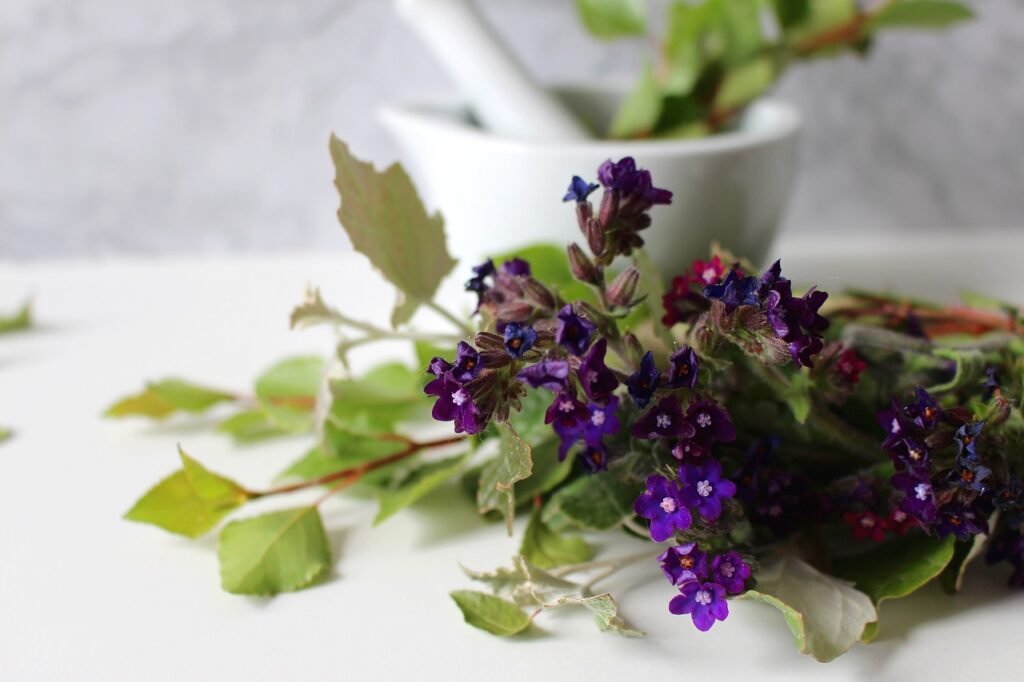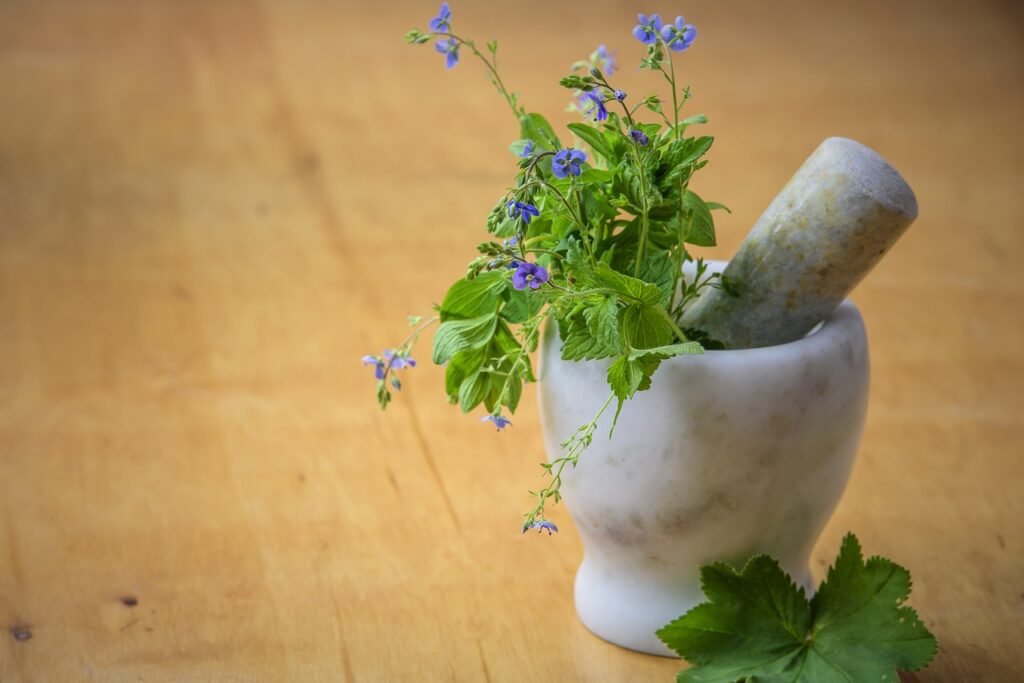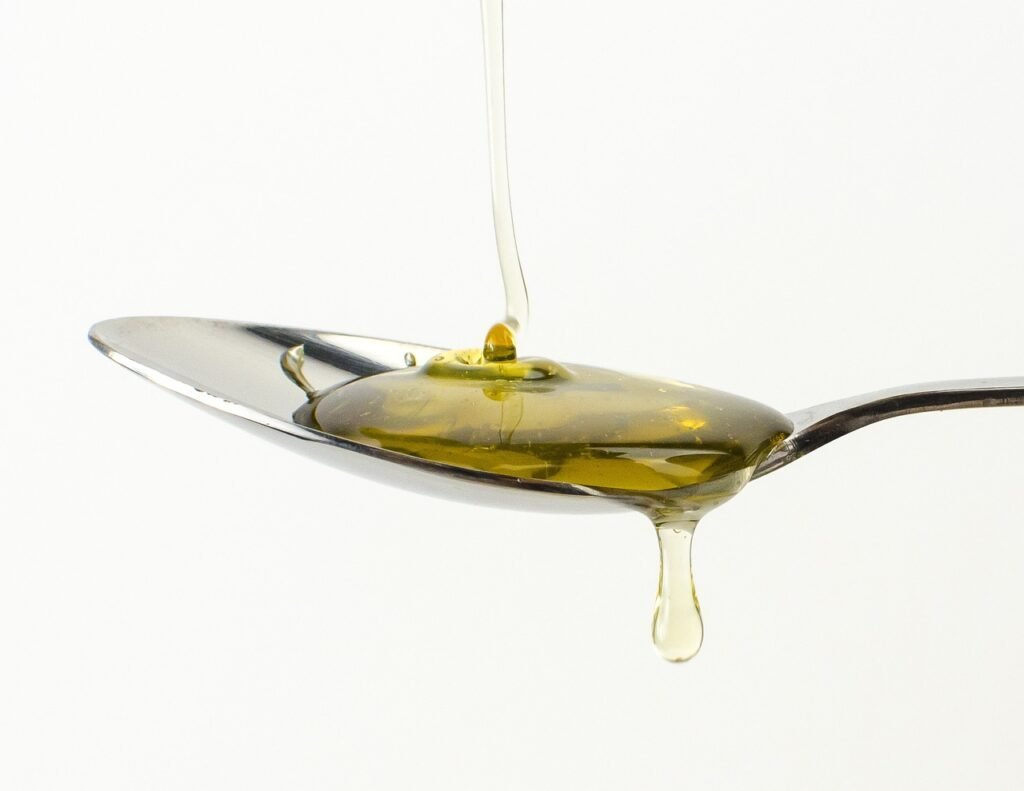Sinus infections can be frustrating and uncomfortable, leading many people to seek out alternative solutions. If you’re tired of dealing with the symptoms of a sinus infection and want to explore holistic remedies, you’re in the right place. In this article, we’ll explore whether there are effective holistic remedies for sinus infections that can provide you with relief. So, sit back, relax, and let’s dive into the world of holistic sinus remedies together!

Understanding Sinus Infections
Definition of sinus infections
Sinus infections, also known as sinusitis, occur when the sinus cavities become inflamed and swollen. The sinuses are hollow spaces located in the bones of the face, and they are responsible for producing mucus that helps protect and moisten the nasal passages. When these sinuses become blocked or infected, it can lead to a range of uncomfortable symptoms.
Causes of sinus infections
Sinus infections can be caused by various factors, including viral infections, bacterial infections, and allergies. Common colds, flu, and other respiratory infections can often lead to sinusitis, as the viruses that cause them can spread to the sinuses. Allergens, such as pollen or pet dander, can also trigger sinus inflammation and infection. Additionally, structural issues in the nasal passages, like nasal polyps or a deviated septum, can contribute to sinus infections.
Symptoms of sinus infections
Sinus infections can present with a variety of symptoms, which may vary in severity from person to person. Common symptoms include facial pain or pressure, nasal congestion, thick nasal drainage, postnasal drip, cough, headache, fatigue, and a reduced sense of smell. In some cases, sinus infections can also cause fever, toothache, and bad breath. These symptoms can significantly impact your quality of life, causing discomfort and making it difficult to go about your daily activities.
Traditional Medical Treatments for Sinus Infections
Overview of conventional treatments
Conventional treatments for sinus infections aim to relieve symptoms and resolve the underlying infection. Depending on the severity and duration of the sinus infection, medical interventions may include over-the-counter medications, prescription antibiotics, nasal decongestants, and pain relievers. In certain cases, your healthcare provider may recommend a nasal corticosteroid spray to reduce inflammation and promote sinus drainage.
Commonly prescribed medications
Antibiotics are commonly prescribed for sinus infections caused by bacterial infections. These medications help eliminate the bacteria causing the infection and can provide relief from symptoms. Nasal decongestants and pain relievers, such as acetaminophen or ibuprofen, can help alleviate congestion and discomfort. It’s important to note that antibiotics are not effective for viral sinus infections, as they do not target the viruses responsible.
Surgical interventions
In some cases, when traditional medical treatments fail to provide relief, surgical interventions may be considered. Surgical options for sinus infections include endoscopic sinus surgery and balloon sinuplasty. These procedures aim to remove blockages in the sinuses and improve drainage. Surgery is typically reserved for individuals with chronic or recurring sinusitis or those with structural abnormalities that contribute to their sinus infections.
What Are Holistic Remedies?
Explanation of holistic approach
Holistic remedies approach health and wellness from a comprehensive perspective, recognizing the interconnectedness of the mind, body, and spirit. This approach calls for integrating various natural methods to address the root cause of health issues, rather than merely treating the symptoms. Holistic remedies for sinus infections focus on supporting the body’s innate healing abilities and promoting overall well-being.
Focus on the whole person
Holistic remedies take into account the unique needs and characteristics of each individual. The approach recognizes that every person is different and may require personalized treatment to address their specific symptoms and underlying causes. By focusing on the whole person, holistic remedies aim to restore balance and optimize health by addressing not only physical symptoms, but also emotional, mental, and spiritual aspects.
Consideration of mind, body, and spirit
Holistic remedies for sinus infections encompass a range of techniques and practices to promote healing and relief. These remedies often involve lifestyle adjustments, dietary changes, herbal remedies, natural supplements, mind-body techniques, and alternative therapies. By addressing the various aspects of well-being, holistic remedies aim to improve overall health and alleviate the symptoms of sinus infections.
Holistic Remedies for Sinus Infections
Steam inhalation therapy
Steam inhalation therapy involves inhaling warm, humid air to help open up the nasal passages and promote sinus drainage. This can be done by leaning over a bowl of hot water, covering your head with a towel, and breathing deeply. The steam helps to relieve congestion and reduce inflammation, providing temporary relief from sinus infection symptoms.
Nasal saline irrigation
Nasal saline irrigation, also known as nasal flushing or nasal rinsing, involves flushing out the nasal passages with a saline solution. This helps to remove excess mucus and irritants from the sinuses, promoting better sinus drainage and reducing inflammation. Nasal saline irrigation can be done using a neti pot, squeeze bottle, or nasal irrigation device.
Acupuncture and acupressure
Acupuncture and acupressure are traditional Chinese medicine techniques that involve stimulating specific points on the body to promote healing and alleviate symptoms. These therapies have been used for centuries to address a variety of health conditions, including sinus infections. By targeting specific acupuncture points or applying pressure to them, these practices can help relieve nasal congestion and other sinus infection symptoms.
Herbal remedies and supplements
Various herbs and natural supplements have been traditionally used to support sinus health and alleviate sinus infection symptoms. Some commonly recommended herbal remedies for sinus infections include eucalyptus, peppermint, ginger, and fenugreek. These herbs can be used in tea form, inhaled as essential oils, or taken as supplements to help reduce inflammation, clear nasal congestion, and boost the immune system.
Essential oils for sinus relief
Certain essential oils have been found to be beneficial for sinus relief due to their anti-inflammatory, antimicrobial, and decongestant properties. Essential oils such as eucalyptus, peppermint, tea tree, and lavender can be used in steam inhalation, diffusers, or applied topically (when diluted) to the chest or temples to alleviate symptoms and promote sinus drainage.

The Science Behind Holistic Sinus Infection Remedies
Research on steam inhalation therapy
Research suggests that steam inhalation therapy can provide temporary relief from sinus infection symptoms. The warm steam helps moisten and soothe the nasal passages, providing relief from congestion and promoting sinus drainage. However, it is important to note that steam inhalation should be done with caution, as hot steam can cause burns or other injuries.
Benefits of nasal saline irrigation
Nasal saline irrigation has been shown to be an effective method for relieving symptoms of sinus infections. The saline solution helps to flush out mucus and irritants, reducing inflammation and promoting better sinus drainage. Studies have found that regular nasal saline irrigation can help improve nasal airflow and reduce symptoms such as nasal congestion and postnasal drip.
Evidence supporting acupuncture and acupressure
Several studies have shown that acupuncture and acupressure can help alleviate symptoms associated with sinus infections. By targeting specific points on the body, these techniques can help reduce nasal congestion, improve sinus drainage, and relieve pain. While more research is needed, many individuals report significant relief from sinus infection symptoms after receiving acupuncture or acupressure treatments.
Studies on herbal remedies and supplements
There is limited scientific research on specific herbal remedies and supplements for sinus infections. However, certain herbs like eucalyptus and peppermint have been found to have anti-inflammatory and decongestant properties. These herbs may provide some relief from sinus infection symptoms. It’s important to consult with a healthcare professional before using any herbal remedies or supplements, as they may interact with medications or have contraindications.
Effectiveness of essential oils
Essential oils have shown promise in relieving sinus infection symptoms due to their antimicrobial, anti-inflammatory, and decongestant properties. Research suggests that essential oils such as eucalyptus and peppermint can help reduce nasal congestion, relieve pain, and support sinus drainage. However, it’s important to use essential oils safely and according to recommended guidelines, as they can be potent and may cause adverse reactions in some individuals.
Potential Benefits and Limitations of Holistic Remedies
Reduced reliance on medication
One of the potential benefits of holistic remedies for sinus infections is the reduced reliance on medication. Many conventional treatments for sinus infections involve the use of antibiotics, which may not always be necessary, especially in cases of viral sinusitis. Holistic remedies provide alternative methods that can help relieve symptoms and support the body’s natural healing process without relying solely on medication.
Minimal side effects
Another potential advantage of holistic remedies is the minimal side effects compared to some conventional treatments. Prescription antibiotics and decongestants can sometimes cause adverse reactions, such as stomach upset or drowsiness. Holistic remedies, when used correctly, generally have fewer side effects and are well-tolerated by most individuals.
Enhanced overall well-being
Holistic remedies aim to address the underlying causes of sinus infections and improve overall well-being. By adopting a holistic approach, individuals may experience improvements not only in their sinus infection symptoms but also in other aspects of their health. Lifestyle changes, including dietary modifications, stress management techniques, and regular exercise, can contribute to enhanced well-being and a stronger immune system.
Individual variability in response
It’s important to recognize that individual responses to holistic remedies may vary. What works effectively for one person may not have the same impact on another. Sinus infections can have different underlying causes and triggers, and finding the most effective holistic remedies may require some trial and error. It’s recommended to consult with a healthcare professional or a qualified holistic practitioner to determine the most appropriate remedies for your specific condition.
Not a substitute for medical advice or treatment
While holistic remedies can be helpful in supporting sinus infection relief, they should not be considered a substitute for medical advice or treatment. If you suspect you have a sinus infection or if your symptoms persist or worsen, it’s important to seek medical attention. A healthcare professional can provide a proper diagnosis and recommend the most appropriate treatment options based on your individual condition.

Professional Guidance and Holistic Practitioners
Consultation with holistic practitioners
If you are considering incorporating holistic remedies into your sinus infection treatment plan, it can be beneficial to consult with a holistic practitioner. These professionals have expertise in various holistic modalities and can provide guidance tailored to your specific needs. They can help develop a comprehensive treatment plan that considers your individual symptoms, lifestyle, and preferences.
Finding reputable practitioners
When seeking a holistic practitioner, it’s important to find reputable and qualified individuals. Look for practitioners who have relevant certifications or licenses in their respective fields. It can be helpful to seek recommendations from trusted sources, such as healthcare professionals or friends who have had positive experiences with holistic practitioners. Additionally, online directories and professional organizations can provide a list of reputable practitioners in your area.
Considering qualifications and experience
When choosing a holistic practitioner, consider their qualifications and experience in treating sinus infections. Look for practitioners who have a background in relevant modalities, such as herbal medicine, acupuncture, or nutrition. Additionally, inquire about their experience in working with individuals with sinus infections or similar conditions. A practitioner with expertise in sinus health can provide more targeted and effective recommendations.
Integration with conventional medical care
It’s important to note that holistic remedies can complement conventional medical care for sinus infections. It’s recommended to inform your primary healthcare provider about any holistic treatments you are considering or currently using. A collaborative approach between conventional medicine and holistic remedies can ensure comprehensive care and support for your sinus infection symptoms. Your healthcare provider can provide guidance on integrating holistic remedies with any prescribed medications or treatments.
Safety Considerations and Precautions
Precautions for pregnant or breastfeeding individuals
Pregnant or breastfeeding individuals should exercise caution when using holistic remedies for sinus infections. It’s important to consult with a healthcare professional before using any herbal remedies, supplements, or essential oils. Some natural substances may have potential risks or contraindications during pregnancy or breastfeeding and may need to be avoided or used with caution.
Allergies and potential adverse reactions
Individuals with known allergies or sensitivities should be mindful when using holistic remedies. Some herbs, essential oils, or other natural substances used in holistic treatments may cause allergic reactions or skin sensitivities. It’s recommended to perform patch tests and read product labels carefully before using any new herbal remedies, supplements, or essential oils.
Interaction with other medications
If you are currently taking any medications for other health conditions, it’s essential to consult with a healthcare professional or pharmacist before starting any new holistic remedies. Some natural substances can interact with medications, potentially diminishing their effectiveness or causing adverse reactions. A healthcare professional can provide guidance on any potential interactions and help ensure the safe use of both conventional medications and holistic remedies.
Individual contraindications and precautions
Individuals with specific medical conditions or health concerns should exercise caution with certain holistic remedies. For example, individuals with asthma or chronic respiratory conditions may need to avoid certain essential oils or herbal supplements that can trigger respiratory symptoms. It’s important to consider individual contraindications and precautions and consult with a healthcare professional before starting any new holistic treatments.

Lifestyle Changes to Support Holistic Remedies
Healthy diet and hydration
A healthy diet and proper hydration can support the body’s natural healing abilities and improve overall immune function. Incorporate a variety of nutrient-rich foods, including fruits, vegetables, whole grains, and lean proteins, into your diet. Stay hydrated by drinking an adequate amount of water throughout the day. Avoid excessive consumption of sugary or processed foods, as they can potentially contribute to inflammation and worsen sinus infection symptoms.
Regular exercise and physical activity
Engaging in regular exercise and maintaining an active lifestyle can support overall well-being and immune function. Physical activity helps improve blood circulation, reduce inflammation, and boost the body’s natural defense mechanisms. Choose activities that you enjoy, such as walking, cycling, or yoga, and aim for at least 30 minutes of moderate-intensity exercise most days of the week.
Stress management and relaxation techniques
Stress can weaken the immune system and potentially worsen sinus infection symptoms. Incorporate stress management techniques into your daily routine to support your overall well-being and immune function. This can include practices like meditation, deep breathing exercises, yoga, or engaging in hobbies or activities that bring joy and relaxation. Finding healthy ways to manage stress can help reduce inflammation and promote healing.
Maintaining a clean and allergen-free environment
Creating a clean and allergen-free environment can help reduce exposure to irritants that can trigger sinus infections or worsen symptoms. Regularly clean your living space, particularly areas prone to dust and allergen accumulation, such as carpets, curtains, and bedding. Use HEPA filters in air purifiers, vacuum cleaners, and consider investing in hypoallergenic pillowcases and mattress covers. Additionally, minimizing exposure to cigarette smoke, pet dander, and other potential allergens can significantly reduce the risk of sinus infections.
Importance of Individualized Approach
Recognizing unique needs and preferences
With holistic remedies for sinus infections, it’s important to recognize that everyone’s needs and preferences are unique. What works effectively for one person may not work for another. It may require some experimentation to find the most suitable holistic remedies for your specific condition. Pay attention to how your body responds and adjust treatments as needed.
Trial and error in finding effective remedies
Finding effective holistic remedies for sinus infections often involves a process of trial and error. Certain remedies may work for some individuals but not for others. It can be helpful to keep a record or journal of your symptoms and the remedies you try to track their effectiveness. Gradually introduce new remedies, assessing their impact, and consult with a healthcare professional or holistic practitioner if needed.
Monitoring progress and adapting treatment
Once you have found holistic remedies that work effectively for your sinus infections, it is important to monitor your progress and adapt your treatment plan as necessary. Our bodies and health conditions can change over time, so periodic reassessment of your symptoms and treatment efficacy is crucial. Make adjustments to your holistic remedies as needed to ensure ongoing relief and support for your sinus infection symptoms.
Seeking professional advice when needed
While holistic remedies can provide relief from sinus infection symptoms, it’s important to seek professional advice when needed. If your symptoms persist or worsen despite holistic treatments, consult with a healthcare professional or holistic practitioner. They can help assess your condition and provide guidance on potential adjustments to your treatment plan. Remember, professional guidance is essential for proper diagnosis and to ensure your health and well-being are prioritized.
In conclusion, holistic remedies for sinus infections offer a comprehensive approach to addressing symptoms and supporting overall well-being. By considering the mind, body, and spirit, these remedies aim to alleviate sinus infection symptoms and reduce the reliance on medication. Remember to consult with healthcare professionals, find reputable holistic practitioners, and prioritize safety considerations while incorporating lifestyle changes and individualized treatment plans. With a personalized and holistic approach, you can find effective relief and enhance your overall health.



